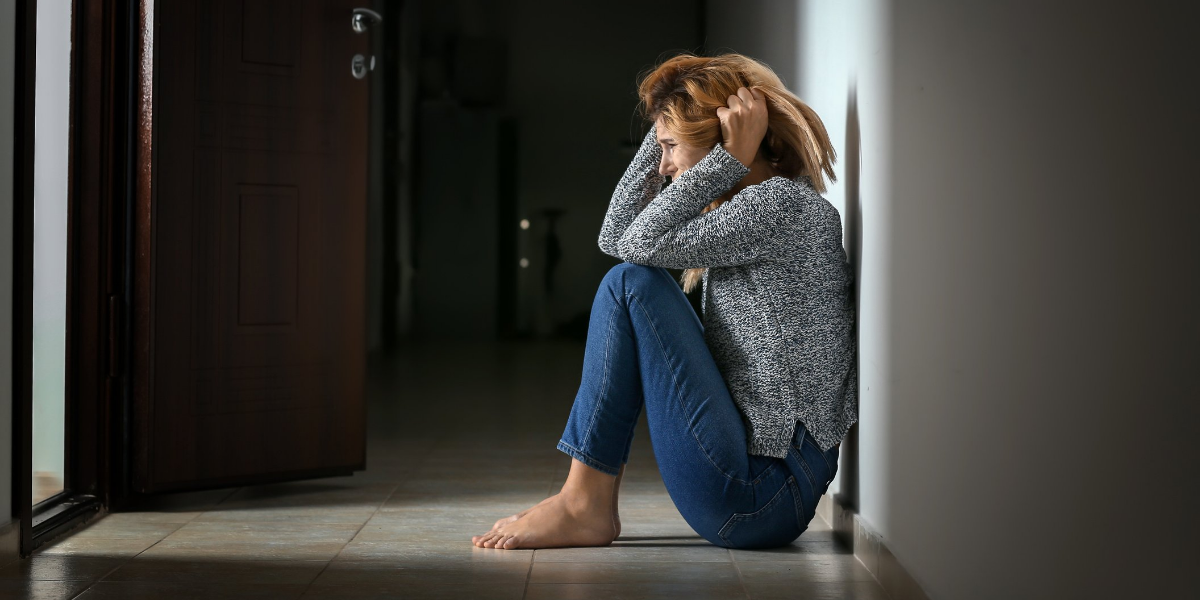What is anxiety?
Anxiety is a feeling of fear or apprehension about what is yet to come, and is the body’s natural response to stress. But if feelings of anxiety are extreme, last more than six months, or interfere with one’s life, an anxiety disorder may be at play.
Different types of anxiety:
- Generalized anxiety disorder: This type of anxiety includes persistent, excessive anxiety, as well as worrying about activities or events to an extent that is disproportionate to the actual circumstance.
- Agoraphobia: This anxiety disorder causes one to fear and sometimes avoid places or situations that might cause feelings of panic, feeling trapped, helplessness or embarrassment.
- Panic disorder: This type of anxiety involves repeated episodes of sudden, intense anxiety and fear that can lead to panic attacks within minutes. A person may experience feelings of impending doom, shortness of breath, chest pain, and/or heart palpitations.
- Social anxiety disorder: This disorder involves high levels of anxiety and fear, and causes one to avoid social situations due to embarrassment, self-consciousness or concern about being judged or viewed negatively by others.
- Phobias: Phobias involve intense anxiety when exposed to a specific object or situation, and result in a strong desire to avoid it. Phobias can sometimes provoke panic attacks.
- Substance-induced anxiety disorder: This type of anxiety includes symptoms of intense anxiety or panic as a direct result of substance misuse, taking medications, being exposed to a toxic substance, or withdrawal from drugs or alcohol.
- Anxiety disorder due to a medical condition: This disorder involves symptoms of intense anxiety or panic that are directly caused by a physical health problem, such as a tumor or thyroid problem.
Symptoms of anxiety:
- Feeling nervous, restless or tense
- A sense of impending danger, panic or doom
- Increased heart rate
- Sweating, trembling or rapid breathing
- Feeling weak or tired
- Trouble concentrating
- Trouble sleeping
- Gastrointestinal problems
- Difficulty controlling worry
- Urge to avoid things that trigger anxiety
Anxiety feels different for everyone who experiences it. Some people may have butterflies in their stomach, while others may feel totally out of control. It can manifest in nightmares, panic attacks, or painful memories, but there are healthy ways to cope and people available to help.
What to do if you think you have anxiety
If you suspect you might have an anxiety disorder, we strongly encourage you to talk to a medical or psychiatric professional. If you have thoughts of suicide or self-harm, or if a loved one has expressed these, please call emergency services or the crisis help line (1-877-303-2642).
Feelings of stress vs. anxiety
Generally speaking, stress is a response to an external cause, such as a work deadline, and tends to subside once the situation has been resolved. Anxiety, on the other hand, is a prolonged, internal worry that persists even in the absence of a stressful situation.
Distinguishing between stress and anxiety is very important in helping people find the support or treatment they need.
Factors that cause anxiety
The causes of anxiety disorders aren’t fully understood, but research shows that traumatic events, environment, brain chemistry and genetic predisposition may be contributing factors.
In some cases, anxiety can be the result of certain medications or even medical conditions, such as:
- Heart disease
- Diabetes
- Thyroid problems
- Respiratory disorders
- Alcohol or drug misuse or withdrawal
- Withdrawal from anti-anxiety medications or other medications
- Chronic pain
- Irritable bowel syndrome
- Rare tumors that produce certain fight-or-flight hormones
Coping with anxiety
For some people, regular exercise, a healthy diet, ample sleep, meditation and mindfulness, and avoiding drugs, alcohol and cigarettes can help to relieve the symptoms of anxiety. If these methods are not helping, or if suicidal feelings arise, it is important to seek professional help right away.
Getting help’
If you are struggling with the symptoms of an anxiety disorder, it is important to see a doctor or mental health professional as soon as possible. If anxiety is left untreated, it can worsen over time.
Your healthcare provider may prescribe therapy or medications to successfully manage symptoms, such as:
- Psychotherapy: Also known as talk therapy, psychotherapy is a general term for talking with a psychiatrist, psychologist or other mental health provider as a means to treat mental health conditions. Psychotherapy may be conducted in individual, family, couple, or group settings, and can benefit both children and adults. Psychotherapy helps patients to learn about their condition, moods, feelings, thoughts and behaviours, and also teaches coping strategies.
- Cognitive Behavioural Therapy (CBT): CBT is a structured type of therapy that teaches specific skills to change unhealthy thought patterns. This method allows patients to manage their thoughts and gradually return to the activities that they used to avoid due to anxiety. CBT also includes exposure therapy to treat phobias.
- Medications: Depending on the type of anxiety disorder and any other mental or physical health issues, several types of medications are used to help relieve symptoms of anxiety. Some examples are anti-anxiety medication, antidepressants, and even sedatives for short-term use. Some medications may be prescribed long term, and others short term, until coping mechanisms are built. Some may be used on an as-needed basis, for example, in cases of panic attacks.
At Sandstone, we believe in finding the right combination of therapies, including medications where necessary, for our patients. We stress the importance of practicing the skills necessary to address those negative thought patterns and find some lasting peace of mind.
These therapies, along with inpatient care, are part of EHN Sandstone’s Mood & Anxiety Program, which successfully manages mental health ailments. Our team of doctors, including a psychiatrist on staff, nurses, and counsellors will help you regain control of your life and get your mental health back on track. Help is available and you deserve to live a happy, fulfilling life. Contact us today at 1-587-350-6818 .
If you or someone you know are having thoughts of self harm or suicide, call 9-1-1 immediately.
Other stories you may be interested in:




